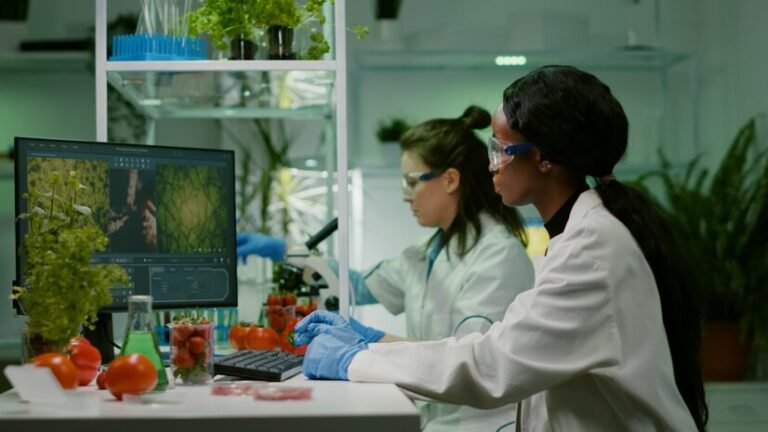Exploring Pharmacognosy and Its Importance
Disciplinas que complementan el estudio de la farmacognosia pharmacognosy is a dynamic and essential discipline that sits at the intersection of traditional knowledge and modern pharmaceutical innovation. This field focuses on studying natural sources, particularly medicinal plants, to discover and understand bioactive compounds used in the development of drugs. Pharmacognosy plays a critical role in healthcare by advancing the creation of herbal medicines, dietary supplements, and synthetic pharmaceuticals inspired by nature. For students, researchers, and professionals in health sciences, gaining expertise in this area allows for better utilizations of natural resources in treating diseases.
However, Pharmacognosy doesn’t exist in a vacuum. It is enriched and enhanced by other scientific fields, which provide invaluable tools and insights. By integrating knowledge from complementary disciplines, students and professionals can deepen their understanding, foster innovation, and pave the way for successful careers. This blog explores the disciplines that complement the study of Pharmacognosy and how mastering them benefits budding pharmacists and researchers.
Essential Complementary Disciplines for Pharmacognosy
To excel in Pharmacognosy, one must branch out into key complementary disciplines. Among the most significant are Phytochemistry, Pharmacology, and Botany. While these are standalone scientific fields, each contributes uniquely to supporting the study of natural medicinal properties and their applications. Let’s take a closer look at their importance.
Phytochemistry
Phytochemistry stands at the core of understanding the chemical composition of medicinal plants. This discipline focuses on the identification and study of naturally occurring compounds, such as alkaloids, flavonoids, glycosides, terpenoids, and more. These bioactive molecules often dictate the therapeutic potential of plants. Phytochemical research allows scientists to isolate compounds and determine their mechanisms, helping to screen substances that can later be synthesized into drugs.
For example, the discovery of quinine, artemisinin, and paclitaxel (taxol) represents significant milestones where Phytochemistry partnered with Pharmacognosy to yield life-saving treatments. Understanding structure-activity relationships (SAR) and ensuring proper plant extraction methods are tasks critical to this field.
Pharmacology
Pharmacology provides the gateway for connecting lab discoveries to patient outcomes. This field investigates how natural compounds affect physiological functions in humans and animals. By studying dosage, drug efficacy, side effects, toxicology, and potential interactions, pharmacologists analyze whether bioactive compounds are viable for clinical use.
For students or professionals diving into Pharmacognosy, having knowledge or training in Pharmacology ensures a deep understanding of the therapeutic implications of natural medicines. After identifying promising plant-derived compounds, Pharmacology comes into play to further evaluate these compounds in preclinical and clinical studies, ensuring their safety and effectiveness.
Botany
Lastly, no exploration of Pharmacognosy can be complete without an understanding of Botany. This discipline helps researchers and students identify, classify, and understand the structural and ecological characteristics of plants. By gaining insight into plant taxonomy, physiology, and morphology, budding Pharmacognosists can locate plants with high medicinal potential in nature.
Botany also encompasses the study of plant habitats and environmental conditions that optimize bioactive compound production. For instance, specific climates may yield higher concentrations of certain alkaloids in plants. The foundation of pharmacognostical research begins with accurate botanical identification, which avoids contamination or misuse of incorrect plant species disciplinas que complementan el estudio de la farmacognosia.
How Complementary Disciplines Impact Career Development
The interplay between Pharmacognosy and its complementary fields unlocks a range of career paths and opportunities in academia, healthcare, and industry. Here’s how cultivating expertise across these disciplines contributes to career growth:
Enhancing Innovation through Multidisciplinary Knowledge
When Pharmacognosy is integrated with knowledge from Phytochemistry, Pharmacology, and Botany, it accelerates the development of novel treatments. Researchers equipped with this multidisciplinary skill set are able to link chemical structures with their pharmacological effects while also considering sustainable cultivation methods for plants.
For instance, pharmaceutical researchers familiar with all three disciplines can be involved in pioneering herbal drug development, optimizing dosage delivery forms, or collaborating on large-scale biodiversity conservation campaigns.
Expanding Career Opportunities
With combined expertise, graduates and professionals in Pharmacognosy find themselves eligible for diverse roles:
- Phytochemical Analyst: Obsessing over extractions, isolations, and qualitative testing of plant-derived molecules.
- Clinical Pharmacologist: Working to translate natural medicines into actionable drug therapies through trials.
- Botanical Research Specialist: Investigating new environments to catalog plant life, trace bioactive potentials, and help with global mapping projects involving endangered medicinal species.
- R&D Specialist in industries like nutraceuticals, cosmetics, and pharmaceuticals.
- Academic Roles educating future Pharmacognosists and conducting interdisciplinary research studies.
Resources and Further Learning
To gain mastery and succeed in Pharmacognosy or related fields, it’s essential to access the right resources. Here are some recommendations tailored for students, researchers, and healthcare professionals looking to deepen their knowledge across complementary disciplines.
Phytochemistry
- Books: “Phytochemical Methods” by Harborne and “Natural Products in Medicinal Chemistry.”
- Journals: Phytochemistry, Planta Medica.
- Online Platforms: ResearchGate for accessing papers and methods.
Pharmacology
- Books: “Goodman & Gilman’s The Pharmacological Basis of Therapeutics,” “Essentials of Pharmacology” by KD Tripathi.
- Journals: The Journal of Pharmacology and Experimental Therapeutics.
- Courses: Introductory Pharmacology MOOCs on platforms like Coursera or edX.
Botany
- Books: “Economic Botany” by S. L. Kochhar and “Plant Systematics” by Michael G. Simpson.
- Journals: The American Journal of Botany, Plant Science.
- Community Resources: Join botanical societies for fieldwork opportunities.
Complementing your Pharmacognosy background with interdisciplinary knowledge ensures that you exceed in innovation-driven careers while staying updated with modern technological revolutions in healthcare.
Unlock Your Potential with Pharmacognosy
Pharmacognosy is undeniably a powerful field bridging ancient knowledge with cutting-edge science. But to truly excel, students and professionals must expand their horizons by exploring complementary disciplines like Phytochemistry, Pharmacology, and Botany. Together, they form a cohesive foundation for discovering new medicines, protecting plant biodiversity, and advancing global health.
If you’re passionate about exploring how these disciplines intersect, consider immersing yourself in books, journals, and hands-on lab experiences to further your understanding. Share your insights below—what other fields do you think can enhance the study of Pharmacognosy?
